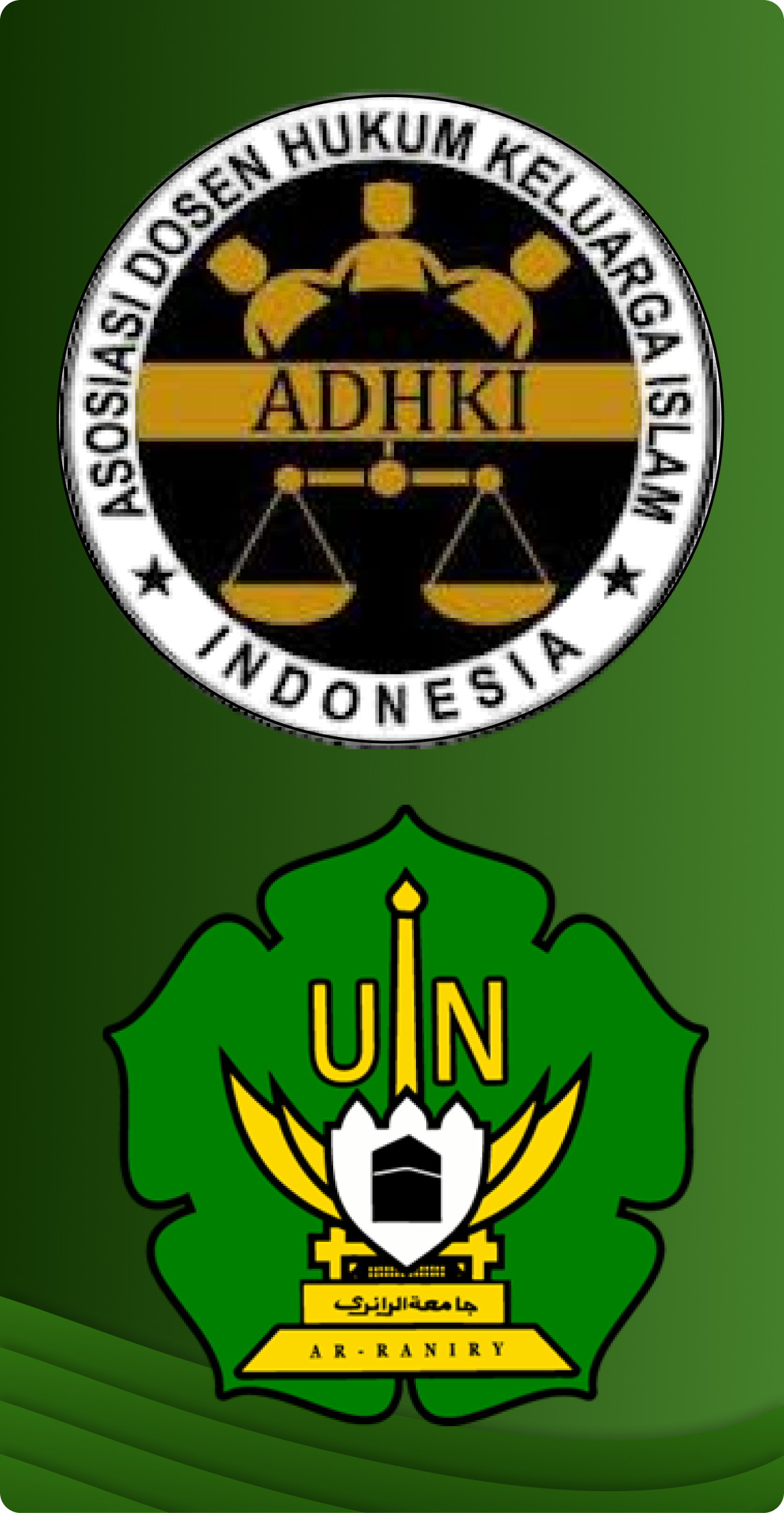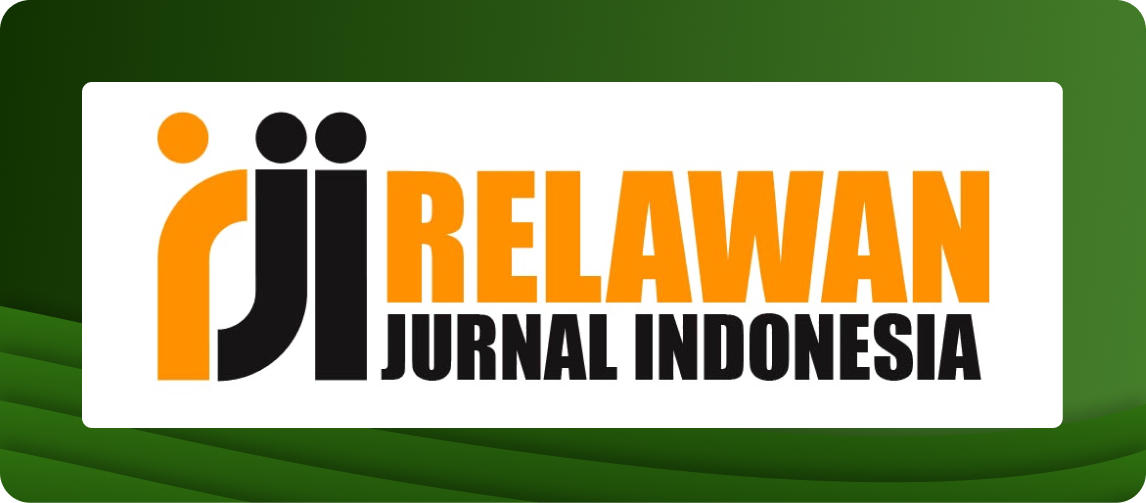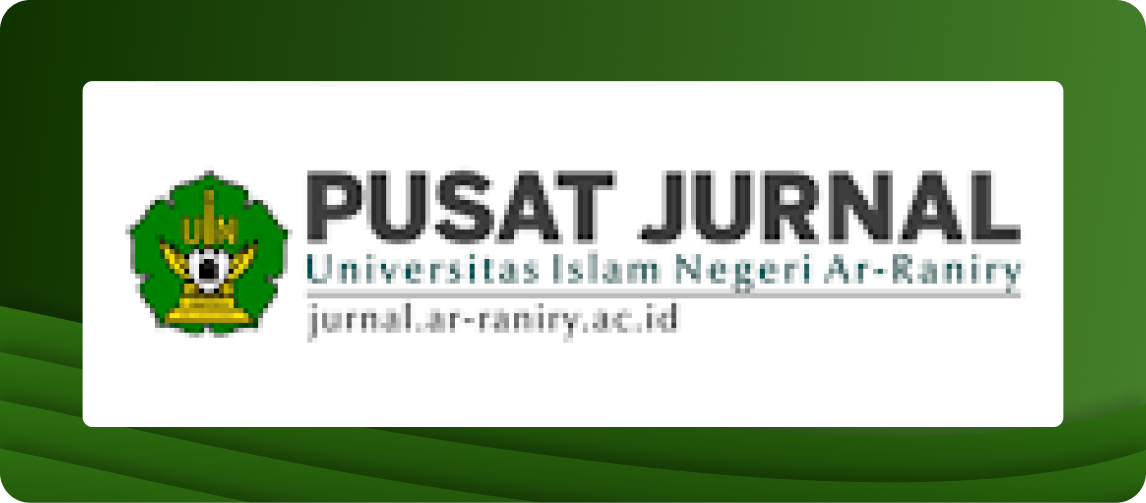Family and Creative Economy in Sunan Gunung Djati Religious Tourism Area, Cirebon, Indonesia
DOI:
https://doi.org/10.22373/ujhk.v7i1.21987Keywords:
Family, creative economy, religious tourismAbstract
This study aims to determine efforts to create a harmonious family, to identify activities, and to determine the factors that influence the income level of creative economy actors. This study employed a qualitative approach to examine the role of families in the creative economy and minimize business weaknesses and factors that influence the income of around 350 service and business sectors. This study found that first, efforts to create a harmonious life for creative economy actors, namely creating household conditions that are communicative and warm, as well as instilling an attitude of acceptance and instilling a sense of trust in married couples. Second, tourism is a labor-intensive sector that includes services and the business world. Third, the main factors that influence the level of creative economy income are internal and external factors. This research provides new insights into a comprehensive review of the family and creative economy of religious tourism at the Sunan Gunung Djati Cemetery, Cirebon.
References
References
Journal and Books
Abdulahanaa Abdulahanaa, “A Review of Islamic Economic Law on Religious Tourism Arrangements in South Sulawesi,” Samarah: Jurnal Hukum Keluarga dan Hukum Islam 5, No. 1 (2021). DOI: http://dx.doi.org/10.22373/sjhk.v5i1.9088.
Ahyani, Hisam et.al., “Building the Values of Rahmatan Lil 'Alamin for Indonesian Economic Development at 4.0 Era from the Perspective of Philosophy and Islamic Economic Law.” al-Ihkam 16, No. 1, (2021). DOI: 10.19105/al-lhkam.v16i1.4550.
Al-Jauhari, Mahmud Muhammad, and Muhammad Abdul Hakim Khayyal. Membangun Keluarga Qur’ani. Jakarta: Amzah, 2005.
Ariani, Christriyati. Motivasi Peziarah. Yogyakarta: Yogyakarta: Putra Widya, 2002.
Ayu, Rizqa Febry and Khaeruddin Kiramang, “The Family’s Roles in the Effects of Working from Home During the Covid-19 Pandemic on Children (A Case Study of Families in Banda Aceh City).” El-Usrah: Jurnal Hukum Keluarga 6, No. 1 (2023). DOI: http://dx.doi.org/10.22373/ujhk.v6i1.11959.
Baharudin Baharudin, et.al., “Authenticity of Traditional Houses, Islam and Cultural Tourism Products and Services,” Ulumuna: Journal of Islamic Stuidies 27, No. 1 (2023). DOI: https://doi.org/10.20414/ujis.v27i1.776
Basariya, S Rabiyathul, and Ramyar Rzgar Ahmed. “The Influence of ‘Adventure Tourism Activities’ in Promoting Tourism Business in Mountain Stations.” Journal of Hospitality and Tourism Management 8, no. 2 (2019).
Basrowi, Suwandi. Memahami Penelitian Kualitatif. Jakarta: Rineka Cipta, 2008.
Bhuiyan, Md Anowar Hossain, Chamhuri Siwar, Shaharuddin Mohamad Ismail, Rabiul Islam, and Darul Ehsan. “Potentials of Islamic Tourism: A Case Study of Malaysia on East Coast Economic Region.” Australian Journal of Basic and Applied Sciences 5, no. 6 (2011).
Biringkanae, Astriwati, and Rahma Gusmawati Tammu. “Pengaruh Pajak Hotel, Pajak Restoran, Pajak Hiburan Terhadap Pendapatan Asli Daerah Kabupaten Tana Toraja.” Journal I La Galigo: Public Administration Journal 4, no. 1 (2021).
Bond, Nigel, Jan Packer, and Roy Ballantyne. “Exploring Visitor Experiences, Activities and Benefits at Three Religious Tourism Sites.” International Journal of Tourism Research 17, no. 5 (2015).
Buditiawan, Kristian. “Strategi Pengembangan Destinasi Pariwisata Kabupaten Jember.” Jurnal Kebijakan Pembangunan 15, no. 1 (2020).
Bungin, Burhan. Penelitian Kualitatif: Komunikasi, Ekonomi, Kebijakan Publik, Dan Ilmu Sosial Lainnya. Jakarta: Kencana, 2007.
Callista, E. “Penilaian Wisatawan Dan Masyarakat Terhadap Fasilitas Objek Wisata Religi KH. Abdurahman Wahid. Bandung.” Tesis Program Studi PWK ITB, 2013.
Creswell, John W. Research Design: Qualitative, Quantitative, and Mixed Methods Approaches. 4th ed. Sage Publications, 2014.
Fakhruudin, Ahmad Sidi Pratomo. “Bank Wakaf Mikro dan Pemberdayaan Usaha Mikro Kecil dan Menengah di Indonesia Perspektif Maqashid Syariah.” De Jure 13, No. 2 (2021).
Fauzia, Ika Yunia. Etika Bisnis Dalam Islam. Jakarta: Prenada Media, 2018.
Fitriana, Aisyah Nurul. “Pengembangan Industri Kreatif Di Kota Batu (Studi Tentang Industri Kreatif Sektor Kerajinan Di Kota Batu).” Jurnal Administrasi Publik 2, no. 2 (2014). https://doi.org/http://dx.doi.org/10.58258/jisip.v7i3.5112.
Fournié, Pierre. “Rediscovering the Walisongo, Indonesia: A Potential New Destination for International Pilgrimage.” International Journal of Religious Tourism and Pilgrimage 7, no. 4 (2019).
Halim, Abd. and Nurdhin Baroroh, “Pariwisata Halal: Studi Komparatif Hotel Syariah di Yogyakarta dan Bali. Al-Manahij: Jurnal Kajian Hukum Islam 15, No. 1 (2021). https://doi.org/10.24090/mnh.v15i1.4602.
Khairul Hamim, “Travel in Islam (A Study of the Concept of Sīrū in the Qur'an),” Ulumuna: Journal of Islamic Studies 27, No. 2 (2023). DOI: https://doi.org/10.20414/ujis.v27i2.785.
Jaelani, Aan. “Halal Tourism Industry in Indonesia: Potential and Prospects.” International Review of Management and Marketing 7, no. 3 (2017).
Jaelani, Abdul Kadir, et.al., “Halal tourism sector and tax allowance policy: a case study observed from normative problems to effective implementation.” Ijtihad 23, No. 2 (2023).
Korstanje, Maximiliano Emanuel. “The Lost Paradise: The Religious Nature of Tourism.” In Global Perspectives on Religious Tourism and Pilgrimage, 129–41 (2018).
Kurniawati, Elya, and Muhammad Aliman. “Participation of Green Environmental Group and Ulur-Ulur Local Wisdom on Buret Lake Ecotourism Management in Karst Area of Tulungagung, Indonesia.” Geo Journal of Tourism and Geosites 30 (2020).
Mujahidin, Akhmad. “Peranan Kearifan Lokal (Local Wisdom) Dalam Pengembangan Ekonomi dan Perbankan Syariah Di Indonesia.” Juris: Jurnal Ilmu Syari’ah 15, No. 2 (2016).
Abdul Manan, et.al., “Halal Tourism: A Proposed Sharia Model for Implementation,” Jurnal Ilmiah Peuradeun 11, No. 1 (2023). DOI: https://doi.org/10.26811/peuradeun.v11i1.784.
Marpaung, Harry. Pengetahuan Kepariwisataan. Bandung: Alfabeta, 2000.
Moleong, Lexy J. Metode Penelitian Kualitatif. Bandung: Remaja Rosdakarya, 2007.
Muin, Fatkhul, and Palmawati Tahir. “Legal Policy of Halal Products for the Development of Small and Micro Enterprises after the Enactment of Government Regulation in Lieu of Law No. 2 of 2022 on the Job Creation.” Al-Risalah: Forum kajian Hukum dan Sosial Kemasyarakatan 23, No. 1 (2023).
Mutawali, Muhammad. “The Dialectics of Customary Law and Islamic Law: An Experience from Dou Donggo Customs of Bima, Indonesia.” Ahkam 21, No. 1 (2021).
Mukhtar, Marduati, et.al., “Involvement of Families as Owners of Cultural Heritage Improving Religious Tourism in Banda Aceh: Perspective of Maslahah Theory.” Samarah: Jurnal Hukum Keluarga dan Hukum Islam 6, No. 2 (2022). DOI: 10.22373/sjhk.v6i2.12537.
Nurhayati. “Khuruj and Family Economic Resilience: Study on Jama’ah Tabligh Family in Medan City.” al-Ahkam 29, No. 1 (2019).
Pawito. “Analisis Semiologi: Sebuah Pengantar.” Dinamika 7, no. 2 (1997).
Rahmaniah, Amelia, et.al., “The Role of Digitalization in Enhancing Legal Competencies of Sharia Economic Law Graduates: A Case Study of graduate users in South Kalimantan.” Syariah: Jurnal Hukum dan Pemikiran 23, No. 1 (2023).
Rashid, Amber Gul. “Religious Tourism–a Review of the Literature.” Journal of Hospitality and Tourism Insights, (2018).
Riadhussyah, Muhammad, “Pengembangan Sumber Daya Manusia Di Bidang Wisata Halal Dalam Menghadapi Revolusi Industri 4.0.” Jurnal MSDA (Manajemen Sumber Daya Aparatur) 8, no. 1 (2020).
Rini, Puspa, and Siti Czafrani. “Pengembangan Ekonomi Kreatif Berbasis Kearifan Lokal Oleh Pemuda Dalam Rangka Menjawab Tantangan Ekonomi Global.” Jurnal UI Untuk Bangsa Seri Sosial Dan Humaniora 1 (2010).
Soebagyo, Soebagyo, “Strategi Pengembangan Pariwisata Di Indonesia.” Liquidity 1, no. 2 (2012).
Sugiyarto, Sugiyarto, and Rabith Jihan Amaruli. “Pengembangan Pariwisata Berbasis Budaya Dan Kearifan Lokal.” Jurnal Administrasi Bisnis 7, no. 1 (2018).
Sukma, Fajar and Zulheldi Zulheldi, “Government Policies in Economic Empowerment of Muslim Communities in the Digital Economy Era.” El-Mashlahah 11, No. 2 (2021).
Suryana. Ekonomi Kreatif-Ekonomi Baru: Mengubah Ide Dan Menciptakan Peluang, Jakarta: Salemba Empat, 2013.
Syukur, Abdul. Ensiklopedi Umum Untuk Pelajar. Jakarta: Ichtiar Baru van Hoeve, 2005.
Utsany, Royan., et.al., “Women's Rights and Gender Equality: An Analysis of Jasser Auda's Thoughts and His Contribution to Renewal of Islamic Family Law in Indonesia.” Journal of Islamic Law 3, No. 2 (2022).
Towoliu, Benny Irwan, et.al., “Can the Chinese Cultural Attraction Become an Icon of Tourism Cultural Heritage? (A Case in China Village, Manado),” Jurnal Ilmiah Peuradeun 8, No. 3 (2020). DOI: https://doi.org/10.26811/peuradeun.v8i3.382.
Wibowo, Sukarno, et.al.. “Pengembangan Ekonomi Melalui Sektor Pariwisata Tourism.” Jurnal Kepariwisataan: Destinasi, Hospitalitas Dan Perjalanan 1, no. 2 (2017).
Winardi, Jusuf. Motivasi Dan Pemotivasian Dalam Manajemen. Jakarta: PT. Raja Grafindo Persada, 2002.
Yuendini, Emy et.al., “Analisis Potensi Ekonomi Sektor Pertanian Dan Sektor Pariwisata Di Provinsi Bali Menggunakan Teknik Analisis Regional.” Jurnal Geografi: Media Informasi Pengembangan Dan Profesi Kegeografian 16, no. 2 (2019).
Yusuf, Muhammad Yasir, et.al., “The Determinants of Tourists’ Intention to Visit Halal Tourism Destinations in Aceh Province,” Samarah: Jurnal Hukum Keluarga dan Hukum Islam 5, No. 2 (2021). DOI: http://dx.doi.org/10.22373/sjhk.v5i2.9270.
Downloads
Published
Issue
Section
License
Authors who publish in El-Usrah: Jurnal Hukum Keluarga agree to the following terms:
Authors retain copyright and grant the journal right of first publication with the work simultaneously licensed Attribution-ShareAlike 4.0 International (CC BY-SA 4.0) that allows others to share the work with an acknowledgment of the work's authorship and initial publication in this journal.
Authors are able to enter into separate, additional contractual arrangements for the non-exclusive distribution of the journal's published version of the work (e.g., post it to an institutional repository or publish it in a book), with an acknowledgment of its initial publication in this journal.
Authors are permitted and encouraged to post their work online (e.g., in institutional repositories or on their website) prior to and during the submission process, as it can lead to productive exchanges, as well as earlier and greater citation of published work. (See The Effect of Open Acces)

















